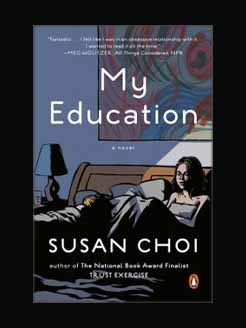Published in 2016
233 pages
Nilanjana Sudeshna “Jhumpa” Lahiri is an Indian American author. Lahiri’s debut short story collection, Interpreter of Maladies (1999), won the 2000 Pulitzer Prize for Fiction, and her first novel, The Namesake (2003), was adapted into the popular film of the same name. She was born Nilanjana Sudeshna but goes by her nickname Jhumpa. Lahiri is a member of the President’s Committee on the Arts and Humanities, appointed by U.S. President Barack Obama.
Lahiri was born in London, the daughter of Indian immigrants from the state of West Bengal. Her family moved to the United States when she was two; Lahiri considers herself an American, having said, “I wasn’t born here, but I might as well have been.” Lahiri grew up in Kingston, Rhode Island, where her father Amar Lahiri works as a librarian at the University of Rhode Island; he is the basis for the protagonist in “The Third and Final Continent,” the closing story from Interpreter of Maladies. Lahiri’s mother wanted her children to grow up knowing their Bengali heritage, and her family often visited relatives in Calcutta (now Kolkata).
When she began kindergarten in Kingston, Rhode Island, Lahiri’s teacher decided to call her by her pet name, Jhumpa, because it was easier to pronounce than her “proper names”. Lahiri recalled, “I always felt so embarrassed by my name…. You feel like you’re causing someone pain just by being who you are.” Lahiri’s ambivalence over her identity was the inspiration for the ambivalence of Gogol, the protagonist of her novel The Namesake, over his unusual name. Lahiri graduated from South Kingstown High School and received her B.A. in English literature from Barnard College in 1989.
Lahiri then received multiple degrees from Boston University: an M.A. in English, M.F.A. in Creative Writing, M.A. in Comparative Literature, and a Ph.D. in Renaissance Studies. She took a fellowship at Provincetown’s Fine Arts Work Center, which lasted for the next two years (1997–1998). Lahiri has taught creative writing at Boston University and the Rhode Island School of Design.
Lahiri’s writing is characterized by her “plain” language and her characters, often Indian immigrants to America who must navigate between the cultural values of their homeland and their adopted home. Lahiri’s fiction is autobiographical and frequently draws upon her own experiences as well as those of her parents, friends, acquaintances, and others in the Bengali communities with which she is familiar. Lahiri examines her characters’ struggles, anxieties, and biases to chronicle the nuances and details of immigrant psychology and behavior.
In 2001, Lahiri married Alberto Vourvoulias-Bush, a journalist who was then Deputy Editor and now Senior Editor of Time Latin America. The couple lives in Rome, Italy with their two children.
What is this book about?
In Other Words is at heart a love story—of a long and sometimes difficult courtship, and a passion that verges on obsession: that of a writer for another language. For Jhumpa Lahiri, that love was for Italian, which first captivated and capsized her during a trip to Florence after college. And although Lahiri studied Italian for many years afterward, true mastery had always eluded her. So in 2012, seeking full immersion, she decided to move to Rome with her family, for “a trial by fire, a sort of baptism” into a new language and world.
In Rome, Lahiri began to read, and to write—initially in her journal—solely in Italian. In Other Words, an autobiographical work written in Italian, investigates the process of learning to express oneself in another language, and describes the journey of a writer seeking a new voice. Presented in a dual-language format, it is a book about exile, linguistic and otherwise, written with an intensity and clarity not seen since Nabokov. A startling act of self-reflection and a provocative exploration of belonging and reinvention.







